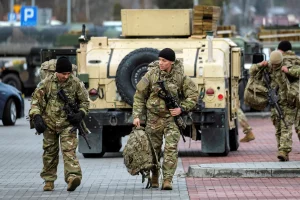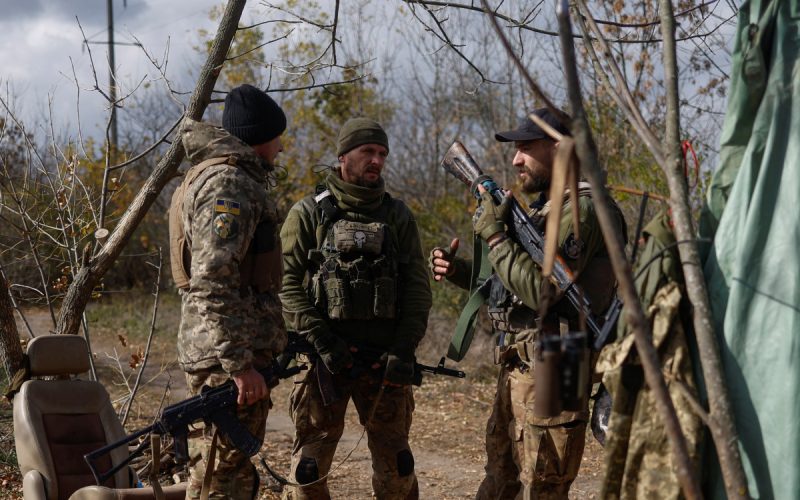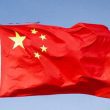In recent months, the international community has been closely monitoring the evolving relationship between Russia and North Korea. The increasing cooperation between President Vladimir Putin and Kim Jong-un has raised concerns, particularly among Japan and South Korea. The prospect of a military pact between Russia and North Korea presents significant geopolitical implications, affecting regional security dynamics in East Asia. This article explores the ramifications of this burgeoning alliance and provides an in-depth analysis of the concerns voiced by Japan and South Korea.
Historical Context

Russia-North Korea Relations
Historically, Russia and North Korea have shared a complex relationship, characterized by fluctuating levels of cooperation and tension. During the Cold War, the Soviet Union was a crucial ally and benefactor of North Korea, providing economic and military support. However, the dissolution of the Soviet Union in 1991 led to a period of reduced influence in the region. In recent years, there has been a noticeable rekindling of ties, driven by mutual interests and strategic considerations.
Japan and South Korea’s Regional Concerns
Japan and South Korea, both close allies of the United States, have long been wary of North Korea’s military ambitions and its nuclear weapons program. The two countries have also faced historical tensions with Russia, particularly over territorial disputes and differing political ideologies. The potential for a Russia-North Korea military pact exacerbates these concerns, prompting both nations to reassess their security strategies and diplomatic approaches.
Key Elements of the Putin-Kim Military Pact
Strategic Military Cooperation
The core of the Putin-Kim military pact is believed to involve strategic military cooperation, including the exchange of intelligence, joint military exercises, and the provision of advanced weaponry. This cooperation aims to bolster North Korea’s military capabilities while providing Russia with a foothold in the Korean Peninsula.
Economic and Technological Support
Beyond military aspects, the pact likely includes provisions for economic and technological support. Russia’s assistance in modernizing North Korea’s infrastructure and technological capabilities can significantly enhance Pyongyang’s self-sufficiency and resilience against international sanctions.
Political and Diplomatic Implications
The alliance also carries significant political and diplomatic implications. By aligning with Russia, North Korea seeks to counterbalance the influence of the United States and its allies in the region. For Russia, the partnership strengthens its geopolitical influence in East Asia and provides leverage in its broader strategic competition with the West.
Japan’s Concerns and Responses
National Security Implications
For Japan, the primary concern revolves around national security. The prospect of a strengthened North Korean military, equipped with advanced Russian technology, poses a direct threat to Japan’s security. Japan has already been within range of North Korea’s ballistic missiles, and enhanced capabilities could further destabilize the region.
Diplomatic and Strategic Measures
In response to the potential pact, Japan is likely to bolster its defense capabilities and deepen its security cooperation with the United States and other regional partners. This includes increasing investments in missile defense systems, enhancing intelligence-sharing mechanisms, and participating in joint military exercises.
Economic and Trade Considerations
Japan may also reconsider its economic and trade policies towards both Russia and North Korea. Stricter economic sanctions and diplomatic pressure could be leveraged to dissuade Russia from advancing its military cooperation with North Korea.
South Korea’s Concerns and Responses
Threat to Regional Stability
South Korea views the Putin-Kim pact as a significant threat to regional stability. The potential for increased military provocations from the North, backed by Russian support, raises the risk of escalation and conflict on the Korean Peninsula.
Strengthening Military Alliances
In response, South Korea is likely to strengthen its military alliances, particularly with the United States. This includes joint military drills, increased deployments of U.S. troops and assets in the region, and the advancement of the Terminal High Altitude Area Defense (THAAD) system.
Diplomatic Efforts and Engagement
South Korea may also intensify its diplomatic efforts to engage with Russia and North Korea, aiming to mitigate the adverse effects of the pact. This includes dialogue initiatives, confidence-building measures, and efforts to revive stalled negotiations on denuclearization.
Comparative Analysis of Japan and South Korea’s Responses
Military Enhancements
Both Japan and South Korea are expected to enhance their military capabilities in response to the Putin-Kim pact. Japan is likely to focus on missile defense and intelligence-sharing, while South Korea may prioritize joint military exercises and advanced defense systems.
Diplomatic Strategies
Diplomatically, Japan may adopt a more confrontational stance, leveraging economic sanctions and international pressure. In contrast, South Korea might pursue a dual approach, combining diplomatic engagement with strategic deterrence.
Economic Policies
Economically, Japan could impose stricter sanctions on Russia and North Korea, while South Korea might seek to balance economic considerations with security imperatives, potentially exploring avenues for dialogue and cooperation.
Analysis Table
| Aspect | Japan’s Concerns | South Korea’s Concerns |
|---|---|---|
| National Security | Threat from enhanced N. Korean military capabilities | Increased risk of regional conflict |
| Diplomatic Measures | Strengthen US alliance, leverage sanctions | Strengthen US alliance, engage diplomatically |
| Military Enhancements | Invest in missile defense, intelligence-sharing | Joint military drills, THAAD deployment |
| Economic Policies | Stricter sanctions on Russia and N. Korea | Balance sanctions with engagement |
Comparative Table
| Response Aspect | Japan | South Korea |
|---|---|---|
| Military Focus | Missile defense, intelligence-sharing | Joint drills, advanced defense systems |
| Diplomatic Approach | Confrontational, leverage sanctions | Dual approach: engagement and deterrence |
| Economic Response | Stricter sanctions | Balanced sanctions and dialogue |
| Alliance Strengthening | Deepen US alliance | Deepen US alliance |
Conclusion
The potential military pact between Russia and North Korea poses significant challenges for Japan and South Korea. Both nations must navigate a complex geopolitical landscape, balancing military enhancements, diplomatic strategies, and economic policies to address the emerging threat. While their responses may differ in approach, the shared objective remains the same: to ensure regional stability and safeguard national security in the face of evolving regional dynamics. The international community will be closely watching how Japan and South Korea adapt to this new reality and what measures they will take to counter the implications of the Putin-Kim military pact.












